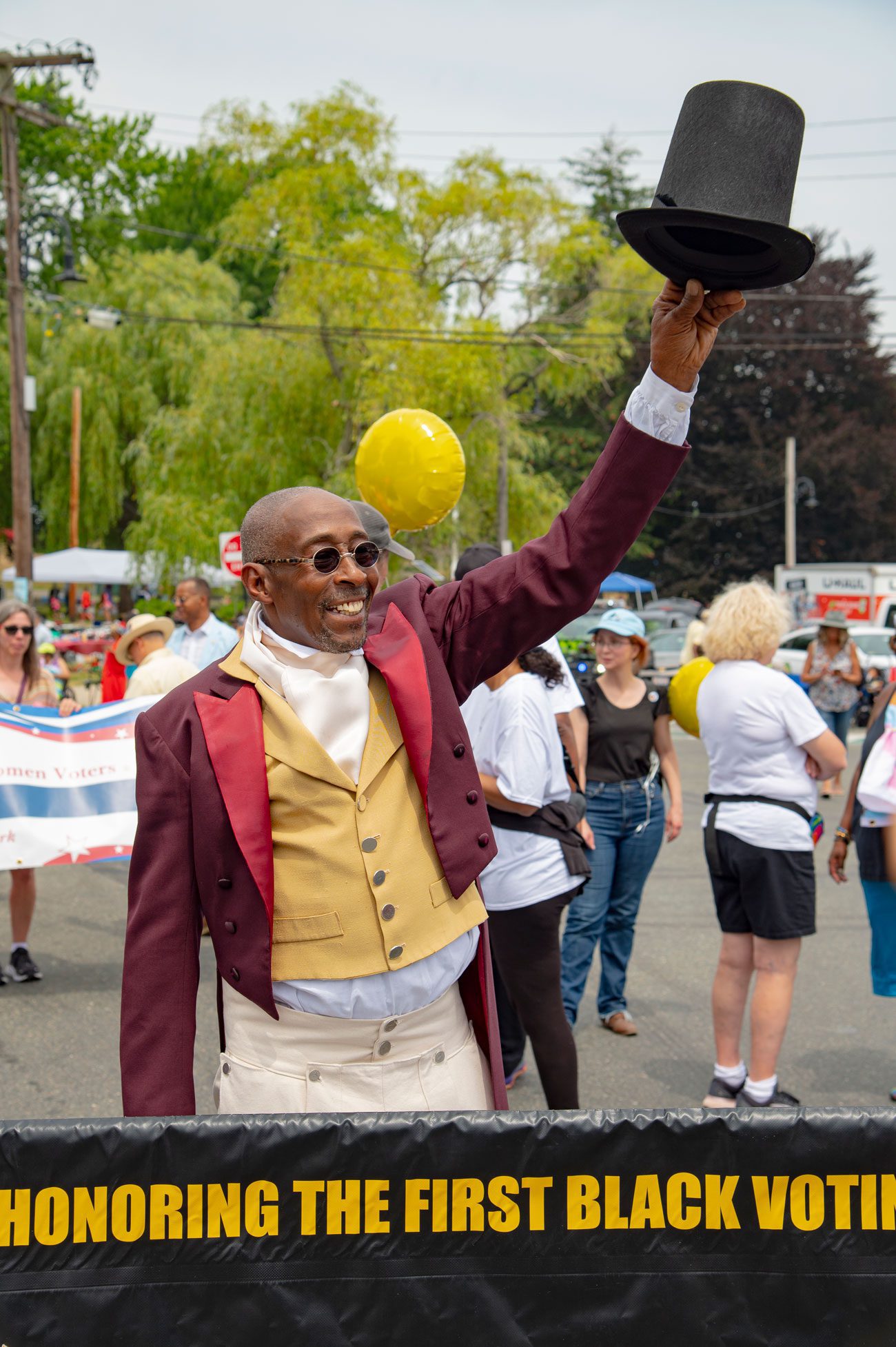SALEM — On Saturday afternoon a tsunami of people gathered at Willows Park to celebrate the legacy of Negro Election Day, which commemorates the adoption of the first Black voting system in Massachusetts in 1741, and could become a state holiday after a bill establishing it as such was approved by the state legislature last week.
In 1741, enslaved and free individuals from within Salem and across New England came together to hold an election of a king or governor, exercising a system of Black self governance. Ever since, Black residents have celebrated — and many of those celebrations have occurred in Willows Park on the third Saturday of July.
If the bill, which was sponsored by Sen. Joan Lovely, who represents Beverly, Danvers, Peabody, Salem, and Topsfield, is signed by Gov. Charlie Baker, Negro Election Day would be formally commemorated as an official state holiday on the third Saturday of July each year.
“I am deeply grateful to the Massachusetts Legislature for enacting my bill establishing Negro Election Day. This annual celebration demonstrates that our communities of color have always been engaged in our Commonwealth’s civic process. We must continue to commemorate the meaningful milestones African Americans have contributed to Massachusetts and our nation today and in all of the days going forward,” Lovely said in a statement.
Throughout Willow Park Saturday, generations of families, friends, children and pets chatted amongst themselves waiting for the parade to pass by. Cook Craig Carter said he has been up since 6 a.m. cooking everything from baby back ribs to fried turkey.
Holly Langley and her family have been coming out to celebrate Negro Election Day for 125 years.
“It’s a family tradition, we have our cook Craig, and we always make sure to serve lobster tails to the elders,” Langley said.
Alongside the oceanfront, venues and tents were set up advertising different organizations, including The National Black Doll Museum of History and Culture.
Founder and Executive Director Deb Britt told stories about her experiences to those who walked by.
“When I was younger there weren’t any Black Barbie dolls. So you know what I would do? I would paint them,” she said.
The parade kicked off around 1 p.m., with Bernard McClamy Jr. taking a place front and center dressed as “King Pompeii” — his outfit complete with a black top hat and crimson coat to represent King Pompeii’s royal blood.
“In 1740, Negroes gathered at the banks of the Saugus River in Lynn, Mass. for the first Negro Election Day. Over time the gathering grew so large it continued to Salem Massachusetts to Salem Willow Park,” McClamy said. “I King Pompeii once again, call this celebration Negro Election Day as reverting back to it’s original name, is now the third Saturday in July as a Massachusetts state holiday.”

